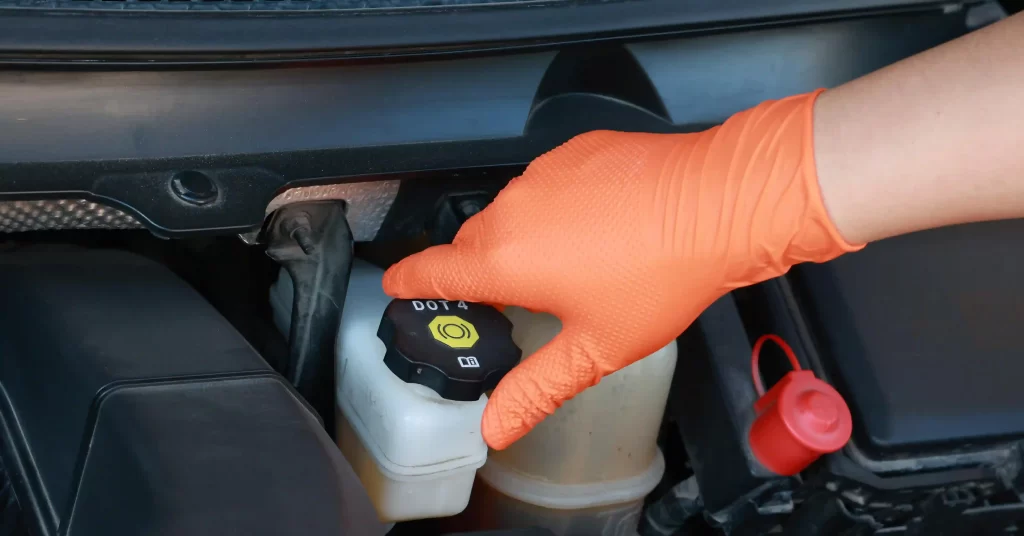Glove products
Differences Between Vinyl Gloves and Nitrile Gloves: Key Insights
Understanding the Basics of Vinyl and Nitrile Gloves
Vinyl gloves and nitrile gloves are prevalent across various industries due to their functionality, protective benefits, and cost-effectiveness. Understanding the differences between these two types of gloves is crucial for selecting the right personal protective equipment (PPE) for different tasks. Vinyl gloves are typically favored for their price and accessibility, while nitrile gloves are renowned for their durability and resistance to chemicals. This distinction makes knowledge about each type fundamental for making informed decisions in healthcare, industry, and even for personal use.
Key Characteristics of Vinyl Gloves
Composition of Materials
Vinyl gloves are crafted from polyvinyl chloride (PVC), a synthetic material that provides a smooth and slightly loose fit. The synthesis process involves adding plasticizers to PVC, making the gloves flexible and easier to wear. This non-latex composition makes vinyl gloves an excellent choice for individuals with latex allergies. However, it’s worth noting that while vinyl gloves are comfortable, they do not provide the same level of stretch and snug fit as latex or nitrile gloves.
Advantages of Using Vinyl Gloves
One of the primary advantages of vinyl gloves is their cost. As a more economical option, vinyl gloves are ideal for use in settings where frequent glove changes are necessary, such as in food service or basic hygiene applications. They are also an excellent option for users with latex sensitivities. Vinyl gloves are easy to put on and take off, enhancing convenience for tasks that require frequent donning and doffing of gloves. Furthermore, their smooth texture provides adequate tactile sensitivity for simple tasks.
Common Applications for Vinyl Gloves
Vinyl gloves are commonly utilized in industries where contamination control and minimal durability are priorities. These applications include the food industry, where gloves need to be replaced frequently to prevent cross-contamination. In medical environments, they are sometimes used for low-risk procedures where high durability and chemical resistance are not critical. Additionally, janitorial and cleaning services often use vinyl gloves because of their cost-effectiveness and adequate protective qualities for handling mild chemicals and detergents.
Key Characteristics of Nitrile Gloves
Material Composition
Nitrile gloves are made from synthetic nitrile rubber, which offers superior strength, flexibility, and chemical resistance. The production of nitrile gloves involves a nitrile compound formed by combining acrylonitrile and butadiene molecules. This composition is entirely free of proteins, which are commonly found in latex and can trigger allergic reactions. The resulting synthetic rubber delivers a snug fit, high puncture resistance, and excellent barrier protection against biohazards and harsh chemicals.
Advantages of Using Nitrile Gloves
Nitrile gloves are renowned for their puncture resistance, making them suitable for handling sharp objects and providing a safer alternative to latex gloves in many scenarios. Their superior chemical resistance makes them ideal for dealing with hazardous substances, including oils, chemicals, and solvents. Nitrile gloves also offer high tactile sensitivity, which is beneficial for tasks requiring precision and dexterity. Additionally, they conform better to the hand, providing a comfortable fit and reducing hand fatigue over extended periods of use.
Common Applications for Nitrile Gloves
Nitrile gloves are widely used in medical and laboratory settings due to their excellent barrier protection and durability. Healthcare professionals prefer them for handling biohazards and conducting surgical procedures. They are also favored in the automotive and manufacturing industries, where workers are exposed to oils, solvents, and other chemicals. In the food industry, nitrile gloves are used for tasks that require stronger protective qualities against punctures and chemicals. Furthermore, they are often the glove of choice for tattoo artists, dental professionals, and mechanics for their reliability and protective attributes.
Performance and Durability Comparison
Puncture Resistance
When comparing puncture resistance, nitrile gloves stand out as the superior choice. Their robust construction provides a high level of protection against sharp objects such as needles and other medical instruments. This makes them particularly useful in healthcare settings where preventing needle stick injuries is critical. Vinyl gloves, on the other hand, lack the same level of puncture resistance. They are more likely to tear or become damaged when exposed to sharp objects, which limits their utility in high-risk environments.
Flexibility and Comfort
In terms of flexibility and comfort, nitrile gloves are generally more favorable. They offer a snug fit and are designed to mimic the dexterity and comfort of latex gloves without causing latex-related allergies. This flexibility allows for a greater range of motion and enhances the precision of tasks that require fine motor skills, such as surgical procedures or laboratory work. Vinyl gloves, while flexible due to their synthetic composition, do not provide the same level of snugness or elasticity. This can lead to a less secure fit and reduced tactile sensitivity, making them less suitable for tasks demanding high dexterity.
Chemical Resistance
Chemical resistance is another critical factor where nitrile gloves excel. They provide an effective barrier against various hazardous chemicals, including oils, greases, and certain solvents, making them ideal for use in industries such as healthcare, automotive, and chemical manufacturing. Vinyl gloves, however, offer limited chemical resistance and are more permeable to chemical substances. This makes them less reliable for tasks involving exposure to harsh chemicals, where the protective qualities of nitrile gloves would be necessary for safety.
Potential Allergic Reactions
Allergic Risks Associated with Vinyl Gloves
Vinyl gloves are a safer option for individuals who have latex allergies, as they do not contain any natural rubber proteins. However, it is essential to note that some individuals might still experience sensitivities or skin irritation due to the plasticizers or additives used in the production of vinyl gloves. While these occurrences are less frequent, they should not be disregarded, especially in environments where continuous glove use is required.
Allergic Risks Associated with Nitrile Gloves
Nitrile gloves are formulated to be allergen-free, which addresses the issue of latex allergies. Despite this, there is a minor possibility that some users may experience skin irritation from prolonged use due to the chemical accelerators used in the manufacturing process. Awareness and proper selection of accelerator-free nitrile gloves can mitigate these rare instances of allergic reactions. Overall, nitrile gloves are considered a lower-risk alternative in terms of allergen exposure when compared to latex gloves.
Environmental Impact and Disposal
Biodegradability of Vinyl Gloves
Vinyl gloves have a significant environmental impact due to their composition. PVC, the primary material in vinyl gloves, is not biodegradable and can persist in the environment for many years. Additionally, the manufacturing process of vinyl gloves involves the use of toxic chemicals, which can contribute to environmental pollution. Proper disposal methods such as incineration or specialized recycling programs are necessary to minimize these negative environmental effects but are not always readily available.
Biodegradability of Nitrile Gloves
Nitrile gloves, while more durable and chemical-resistant, also present environmental challenges. Like vinyl gloves, nitrile gloves are not biodegradable and can remain in landfills for an extended period. However, recent advancements have led to the development of more eco-friendly nitrile gloves designed to break down more efficiently in landfill conditions. Despite these innovations, the environmental impact remains a concern, underscoring the importance of responsible use and disposal practices, alongside efforts to develop more sustainable alternatives.
Selecting the Right Glove for Your Needs
Choosing between vinyl gloves and nitrile gloves depends significantly on the specific requirements of the task at hand. For low-risk activities such as food handling and basic hygiene tasks, vinyl gloves provide a cost-effective solution, especially when frequent glove changes are necessary. Conversely, for situations demanding high durability, puncture resistance, and chemical protection, nitrile gloves are the preferred option. Healthcare professionals, laboratory workers, and those working with hazardous materials will benefit from the superior protective qualities of nitrile gloves. Additionally, considering potential allergic reactions and environmental impact is crucial for making a well-informed decision that aligns with safety, comfort, and sustainability standards.
INTCO offers a range of Vinyl Gloves and Nitrile Gloves that provide excellent protection and comfort for various industries and applications.
Vinyl Gloves:
INTCO’s Vinyl Gloves are made of polyvinyl chloride (PVC) material, making them an economical option. These gloves have been upgraded in terms of formula and process to enhance their performance in terms of tactile sensitivity and strength. They are dry, smooth, and easy to wear, providing a comfortable feel. Vinyl Gloves are suitable for general operating tasks such as food service, beauty, and cleaning, offering barrier protection against cross-contamination. They are also commonly used in nursing homes and hospitals for general medical examination and routine patient care.
Nitrile Gloves:
INTCO’s Nitrile Gloves are made of 100% nitrile latex. These gloves are produced in a clean and safe environment, with low TNVR and ion content, and no silicone oil, amino compounds, or dioctyl esters. They offer excellent resistance to chemical solvent corrosion, puncture, and antistatic performance. Nitrile Gloves are comfortable, soft, and flexible, making them ideal for various industries such as semiconductor manufacturing, pharmaceuticals, and biomedical applications. They provide reliable barrier protection against bacteria, viruses, chemicals, and hazardous substances.
Both Vinyl Gloves and Nitrile Gloves from INTCO are designed to meet the needs of different industries and provide reliable hand protection.



























